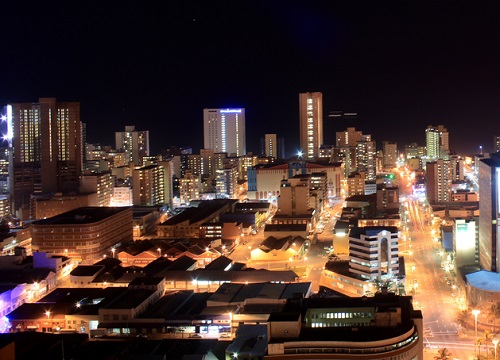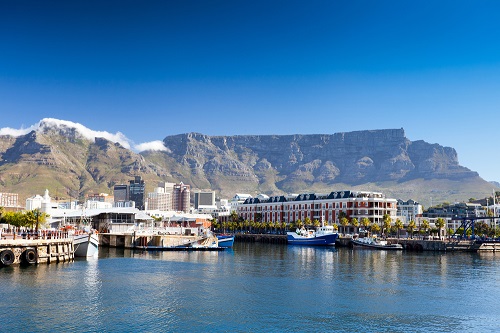South Africa’s banking sector is highly concentrated, with the five largest banks holding over 90% of total assets in February 2019. At first glance, the South African banking system can seem somewhat complicated, but this means that foreigners will find a plethora of banking options available to them, interconnected by a sophisticated banking system.The heart of the banking system is the South African Reserve Bank, which acts as the primary authority and custodian of the country’s gold and foreign exchange reserves. Essentially, the Reserve Bank’s primary functions are to protect the value of the rand (South African currency) and to control inflation. The Reserve Bank regulates the money supply by influencing its cost, issues banknotes, and is responsible for the sale and purchase of foreign exchange for the government.
In 2019, there were 42 registered banking institutions (excluding registered foreign bank representatives) and 30 foreign banks with approved representative offices in South Africa. Total assets of all types of registered banks stood at ZAR 5.74 trillion in May 2019, a year-on-year increase of 11.1%.
Banking options for expats
If you are moving to South Africa from another African country, you may find that you do not need to set up a new bank account, as the major banking institutions in South Africa are some of the largest banking providers operating in the whole of Africa. If you are moving from outside of Africa, but you are with an international provider that operates in South Africa, you can simply visit a local branch and register as local. However, if the above does not apply to you, then you may need to set up a new bank account.
You will need at least a basic South African bank account in order to send money to or from South Africa, to receive your wages, to pay utility bills and taxes, etc. Other types of bank accounts and banking options will be available to you. For example, you may be interested in investment or offshore banking.

South African citizens can deposit up to ZAR 10 million a year into offshore accounts, subject to tax clearance, or a maximum of ZAR 1 million without tax clearance (although you will need to register this with the Reserve Bank). In order to legally move money offshore, the process and transaction will need to be handled by an authorised bank. Once you’ve transferred your money into an offshore account, you can leave it there, invest it, or convert it into a currency of your choice. You can also deposit your savings into an offshore fund, although your cash will remain in South African currency, as it won’t physically leave South Africa.
When choosing a bank in South Africa, there is a list of criteria that you will want to consider, including:
• Whether the bank charges a monthly or annual fee
• If the bank allows you to withdraw cash regularly
• If it is possible to withdraw and deposit money at any cashpoint
• Whether you are able to utilise all ATMs and EFTPOS facilities
• What level of interest they can offer on your money
• If the bank offers telephone and internet banking options
• What they offer in terms of security and fraud protection
It’s well worth shopping around for the best deal before you make a decision, so don’t just sign up with the first bank that you come across!
How to open a bank account in South Africa
The sort of bank account that you can open in South Africa will depend on the type of visa you have. For example, if you are on a tourist visa, you will only be able to open a bank account in South Africa that is classified as a non-resident account. Such accounts come with various limitations and restrictions.
You can only open a ‘resident’ bank account in South Africa if you are in possession of a valid residency visa. This can come in the form of either a temporary or permanent resident visa permit. A resident account is a normal bank account without specific limitations or restrictions.
Regardless of your visa status, you will need to be a minimum age of 18 years old in order to open your own bank account in South Africa.
In order to open a resident bank account as a foreign national, you will need to:
• Declare all foreign funds and/or foreign assets brought into the country
• Complete any necessary forms, such as the Foreign National Declaration and Confirmation of Employment by a South African Employer form
• Provide a written declaration that foreign assets will not be given to a third party resident in South Africa
• Present yourself to the bank with a valid passport and a copy of your biometric data page
• Show your work or study permit (whichever is applicable)
• Show proof of address in South Africa in the form of official correspondence or a utility bill
• Provide copies of recent bank statements from your home country bank or solid evidence of your banking history

It is possible to open South African bank accounts from abroad, but your application form and any declarations must be accompanied by a certified signature (from either a lawyer or solicitor).
You can also open a bank account without current employment and/or without depositing any money, but quarterly maintenance fees may apply.
For non-residents wishing to open a South African bank account, a minimum opening deposit will be required. The exact amount needed for this will depend on the bank provider. You will also need to provide bank statements from the last three months, as well as proof of income.
More about banking in South Africa
Some of the major banking institutions in South Africa are Mercantile Bank, Standard Bank, Absa, FirstRand, Nedbank, Investec and Capitec Bank, all of which operate internationally.
The majority of South African banks charge account fees, as well as transaction and withdrawal fees in many cases. Branches are typically open from 9 a.m. to around 4 p.m. on weekdays, although these times can vary slightly depending on the provider. On Saturdays, many banks open from 9 a.m. until 11 a.m. Banks in South Africa always close on public holidays and on Sundays.
Since 2015, South African citizens have been able to invest up to ZAR 30,000 a year (up to a lifetime total of ZAR 500,000) into tax-free savings bank accounts, as part of a government initiative designed to encourage savings. Any contributions above the yearly limit are taxed at 40%.
The major concerns for many expats when it comes to banking in South Africa are more in relation to political stability than anything else, and how that may or may not have adverse effects on the economy. It may help to do some research on the subject and carefully consider your options.

